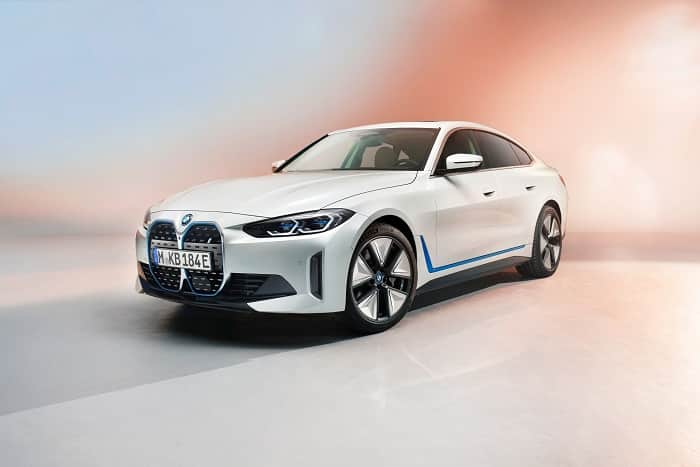The Department of Trade, Industry and Competition (dtic) has released a green paper on the South African roadmap to the production of electric vehicles.
Trade, Industry and Competition Minister, Ebrahim Patel, said the purpose of the green paper is to establish a clear policy foundation. He added that this will enable the country to coordinate a long-term strategy that will position South Africa at the forefront of advanced vehicle and vehicle component manufacturing.
“The strategy is complemented by a consumption leg, and a focus on increasing competitiveness in the global race to transition from the internal combustion engine era, into electro-mobility solutions and technologies,” Patel said on Tuesday.
In August 2019, the Minister set the large automakers in South Africa a challenge to help develop a roadmap for the local production of electric vehicles.
“The future of the automotive industry in South Africa lies in large-scale vehicle production and component exports and there is, therefore, a general acknowledgement in the domestic automotive industry that it must think differently in the way it perceives the electric evolution,” concludes the paper.
“Exporting remains key to generate sufficient economies of scale and achieving improved international competitiveness.
“If South Africa does not want to lose its major export markets and face significant job losses at plant level, export revenue, as well as a substantial drop in the automotive industry’s contribution to the GDP, which currently stands at 4,9%, it must accelerate its EV transformation in the country.”
The Draft Green Paper seeks to develop a framework for a comprehensive and long-term automotive industry transformation plan on new energy vehicles.
“We must step up efforts to build electric vehicles in South Africa, to keep our auto industry at the cutting edge of new market developments, and to maintain our export capacity for key markets such as the EU and UK. They have both set new targets and deadlines to reduce the number of fossil fuel reliant vehicles on their roads.
“We need charging infrastructure – and must expand the existing 200 charging points for electric vehicles in South Africa using the agreed SABS [South African Bureau of Standards] standard,” Patel said during his Budget Vote address to Parliament.
He added that the government is seeing some progress in its efforts to green the economy and position South Africa as a centre for advanced green manufacturing.
“For example, in November, the first units of the new Toyota Corolla hybrid vehicle are planned to roll off the production line in South Africa,” Patel said.
He said the green paper is released to invite substantive comments from all stakeholders, including public members.
“This is the beginning of a crucial public discourse that will define electro-mobility in South Africa.”
The roadmap to implementing the new energy vehicle policy will entail the following steps:
-
- Gazetting the draft policy for public comments by the end of May 2021; and
- Submitting the policy proposals to Cabinet for consideration by October 2021
For the South African automotive industry not to fall behind global developments and lose its edge in the export market, a coherent strategy by all stakeholders in the country is needed for the shift to the production of electric vehicles.
Electric car sales in South Africa comprised only 92 units, or 0,02% of the total 380,206 vehicles sold in the domestic market in 2020, down from 154 units in 2019. Hybrid vehicle sales accounted for 232 units in 2020.
The petrol and diesel fuel types vehicles collectively make up 90% of the overall South African vehicle market.
The Electric, Plug-in and traditional hybrid have been below the 1% mark for the past 10 years, with 4,892 Electric, Plug-in and traditional hybrid new vehicle units sold out of the 5 694 860 aggregated market sales since 2011 to date.
The Green Paper noted that sales of electric cars could increase significantly if purchases of these vehicles are made by government, industry corporate fleet sales and vehicle rental companies. Considering that in 2020 sales to a government comprised 4,2% or 16,126 units of total new vehicle sales of 380,206 units, sales to industry corporate fleet comprises 3,7% or 14,218 units, and sales to the vehicle rental companies comprised 6,6%, or 25,015 units [12,7% or 68,310 units in 2019] of total new vehicle sales.
On the strength of the above narrative, the dtic suggested proposals and available policy instruments South Africa can leverage to minimise disruption and transition to electric cars seamlessly using a carefully implemented phased approach.
This approach would include in its core:
- creating and stimulating production of electric vehicles to generate industrial and job opportunities for local manufacture of vehicles and related components, both for export markets and to satisfy domestic demand. In other words, the country should do everything possible not to have the existing manufacturing capacity confined to ICE vehicles whilst domestic and export consumption shifts to electric cars;
- consideration should be given to further encouragement of the country’s transition to electric vehicles: Electric cars may need to be incentivised additionally, based on a careful analysis of cost structures, volumes and the effect of technology innovation, to reduce the current price gap as compared to ICE vehicles. Any proposed support should have a soft run-out;
- increased foreign investment to benefit the country’s growth and recovery ambitions, increase employment, create an upskilled workforce, and sponsor interventions that would progressively promote a healthier environment.

2 Comments
Pingback: How Many Electric Cars Were Sold In South Africa In 2020? | TechFinancials
Pingback: SA must accelerate its electric car plan to avoid export revenue and job losses – Gibela Transport Magazine